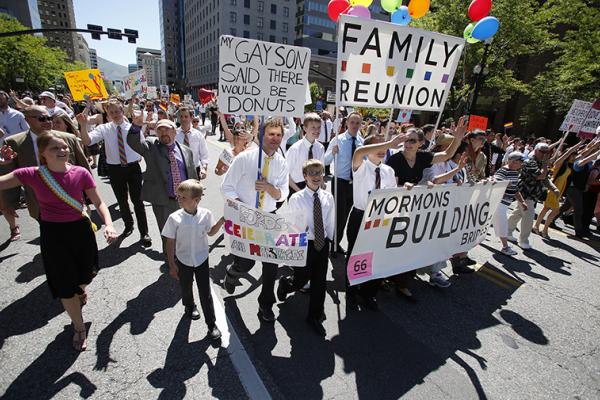Gay marriage is now the law of the land and, increasingly, a line in the sand conservative churches say they will not cross.
The latest is the Church of Jesus Christ of Latter-day Saints. On Nov. 5, it issued new guidelines, saying Mormons in same-sex relationships will face possible excommunication and their children will not be permitted to join the church until they are 18 — and then only if they reject their parents’ relationship.
The new policies make the LDS church, with about 15 million members globally, the largest Christian denomination to enact such a formal — and some say draconian — policy. Children of same-sex couples are effectively denied baptism and other ordinances of the church.
“I am sure everyone feels regret about this,” said D. Michael Quinn, a scholar who was excommunicated by the LDS church in 1993 but still considers himself a Mormon.
“The leaders who have instituted this have done so without any relish. They have done so with regret. All Mormons down the line will look at it as regrettable.”
Read the Full Article

